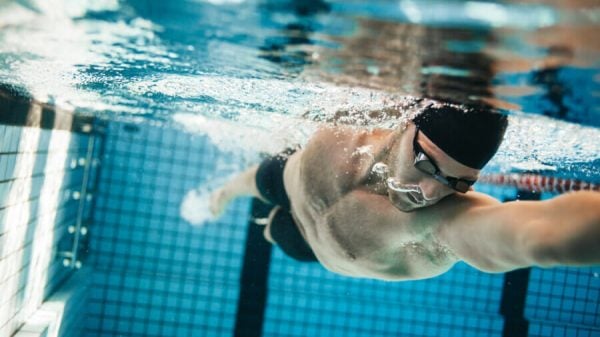Physical activity is frequently lauded for its diverse array of advantages in aging gracefully, such as supporting a strong heart, managing metabolism, and boosting flexibility and strength for enhanced movement. Moreover, exercise plays a vital role in sustaining brain health.
Regular physical activity, as emphasized by the Centers for Disease Control and Prevention (CDC), not only lowers the chances of developing dementia but also assists in managing various cognitive functions like emotional well-being, problem-solving, learning, organization, and memory.
A study put out in Preventive Medicine in 2020 found that individuals who lead sedentary lives are twice as likely to experience cognitive decline than those who partake in routine physical exercises.
The strong correlation between mental acuity and physical fitness can be ascribed to numerous factors. Enhanced cardiovascular function from exercise results in improved blood circulation and oxygen delivery to the brain, reduced inflammation, and balanced stress hormones, as elucidated by Dr. Karishma Patwa, a heart specialist at Manhattan Cardiology in New York City.
Morphological alterations happen in the brain due to physical exertion, which involve increased cortical thickness, establishment of fresh neural connections, and reinforced white matter and hippocampus. These modifications collectively act as a shield against age-related challenges that might affect individuals with a more sedentary way of life.
Even basic activities like walking the dog or tending to a garden can be advantageous, but embracing a structured exercise routine can escalate the cognitive advantages of working out. Here are the four most effective workouts for brain health, supported by research for their influence on cognitive function.
1. High-intensity interval training (HIIT)
While continuous activities like biking or jogging render benefits, modifying the intensity of exercise sessions, such as through HIIT, can prove advantageous for cognitive well-being. A review from 2020 published in the Journal of Science and Medicine in Sport demonstrated that both HIIT and low-intensity exercise enhance brain function. Nonetheless, HIIT may offer extra advantages by controlling the secretion of cortisol, a stress-related hormone.
Regulating cortisol levels through activities like HIIT can significantly influence brain function, as cortisol impacts immunity, inflammation, blood pressure, metabolism, and blood sugar levels, all of which are crucial for brain health.
2. Resistance Training
Evidence supports the notion that stronger muscles contribute to improved cognitive health. A meta-analysis in Frontiers in Psychology in 2022 indicated that older adults engaging in resistance training at least twice weekly experienced notable cognitive enhancements, including enhanced cerebral blood flow and optimized hormone regulation.
Strength training not only boosts muscle mass and strength but is also imperative for older individuals as muscle frailty can affect mobility and metabolic well-being. Even a 12-week resistance training regimen, as demonstrated in a small study in GeroScience in 2023, can bring about alterations in brain function that aid in staving off cognitive decline with advancing age.
3. Yoga
Famed for enhancing flexibility and range of motion, yoga emerges as an outstanding workout for cognitive health owing to its emphasis on mindfulness and breathing exercises, which can fortify brain function. Studies have revealed that yoga’s focus on rhythmic breathing, meditation, and concentrated attention can heighten cerebral blood flow and positively influence brain structure.
Short-term yoga practice can also ameliorate emotional reactivity, thereby reducing stress and depressive symptoms, as indicated in a 2018 study in Frontiers in Human Neuroscience.
4. Dance
Participating in dancing is a fun and approachable means to bolster cognitive health. Research published in Frontiers in Human Neuroscience in 2021 suggests that dancing engages various brain regions linked to emotions, cognitive functions, sensory processing, information reception, and creativity. The CDC even endorses dancing as an activity to enhance memory, attention, and focus in elderly individuals.
If dancing is not your preference, engaging in any social activity while being physically active can also be advantageous. For example, a 2021 study in Frontiers in Psychiatry showcased the positive effects of exercise programs centered on social interaction and playfulness on brain function and depressive symptoms.










